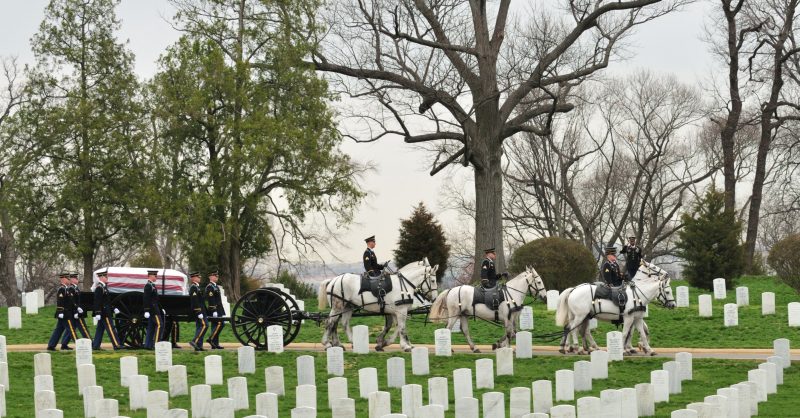Willis Carto, an 89-year-old wounded U.S. veteran of World War II passed away in October 2015. While fighting as a soldier in the Philippines, Carto was wounded and eventually received a Purple Heart for his service. He was buried in the presence of his friends and family at the famous Arlington National Cemetery in Virginia. Carto is, however, remembered by many for his pro-Nazi sentiments coupled with his contentious belief that the Holocaust was a hoax.
The veterans who receive this prestigious award, and their family members, are eligible to be buried in the Arlington cemetery. An exception would be made for those who later received a dishonorable discharge or a state or federal conviction of some kind.
Jennifer Lynch is a spokesperson for the cemetery, who was asked about the burial of Carto despite his controversial views. She explained that a person’s political views did not impact the eligibility requirements.
Carto was not shy about his white supremacist mentalities, his strongly held anti-Jewish sentiments, or his belief the Holocaust was a fabrication.
Taking it one step further, Carto even admitted that during the war he had fought on the wrong side. He declared his thoughts in a letter in 1966, when he wrote, “the defeat of Hitler was the defeat of Europe and of America.”
His life after the military was filled with various causes intended to perpetuate his beliefs. Liberty Lobby was an extremely far-right organization, known for its racist ideologies, and the Institute for Historical Review was a Holocaust denier group; both were groups founded by Mr. Carto himself.
The New York Times published an obituary for Carto highlighting the Liberty Lobby’s peak popularity in the 1980s when it had over 400,000 newsletter subscribers. Todd Blodgett, advertising manager for Liberty Lobby, was their informant. Mr. Blodgett explained that Mr. Carto hoped to be buried in the Arlington National Cemetery because he enjoyed the irony of being a pro-Nazi American war hero.
One mourner present at the man’s funeral expressed positive feelings about Carto, calling him a hero who should be remembered for his fight against oppression. Another mourner simply called him a great man whom he had known personally. This mourner dismissed the offense that people might take to Carto’s views and instead eluded to a “counterrevolution” being far more worrisome.
Meanwhile, there was another much larger service taking place one floor up in the administrative building – the memorial of a Dorothy Goldstein, the recently deceased wife of a retired army officer. The couple were Jewish, and the funeral was very well-attended.
